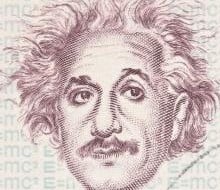Best book to help you deal with your ASD
I guess "The Complete Guide to Asperger's Syndrome" by Tony Attwood is a classic. But it's a bit too "textbooky" for me. Like the target market is child psychologists, social workers: but not us.
I also bought "Freaks, Geeks and Asperger's Syndrome" because I want to hear first hand from an aspie about how he handles life and what he has to do to fit and make friends etc. And I've also bought Attwood's "Been There, Done That. Try This! An Aspie's Guide to Life on Earth". Each chapter covers a different ie making friends, dating, work, bullying, depression etc. And he interviewed aspies who told their story of how they successfully dealt with problems in each area
TBH I'm finding Autism Talk TV on YouTube invaluable.
So what guide book (on coping with ASD/AS) would you recommend?
The OASIS Guide to Asperger Syndrome: Completely Revised and Updated: Advice, Support, Insight, and Inspiration (2005)
http://www.amazon.com/The-OASIS-Guide-A ... 1400081521
As the mother of a boy diagnosed with AS in 1994, Barbara Kirby found scant resources and support. She developed the internationally renowned OASIS (Online Asperger Syndrome Information and Support) Web site in 1995 to help other parents find the information they need. She teamed up with Patricia Romanowski Bashe, now co-owner of OASIS and herself the mother of a son with AS, to write The OASIS Guide to Asperger Syndrome, which has become the standout authority in the field and a must-have for this growing audience.
Now Bashe and Kirby have crafted a fully revised edition of this comprehensive resource for parents, teachers, therapists, and anyone who knows or works with someone with AS. In addition to discussing what AS looks like and how parents can guide their unique child through the social, emotional, and intellectual challenges of growing up, this edition includes new developments made in AS research over the past four years, new thinking on diagnosis and evaluation, the latest approaches to medication and social skills development, and tips on navigating the maze of interventions, therapies, and special education. The authors know firsthand the joys and frustrations of raising children with AS, and they share their own experiences as well as those of dozens of parents facing the same issues.
Filled with practical information and emotional support, this is the most complete and authoritative guide available. Whether your child has been diagnosed or troubling symptoms are just becoming apparent, this book will point you in the right direction as you face the particular challenges of loving and raising a child with Asperger Syndrome.
A titch dated, this book is written for the parents of children with Asperger's Syndrome (AS) and other autism-spectrum disorders (ASDs), so it is as relevant to adults with ASDs as any other book. But, it is encyclopedic, so there are interesting parts.
I am waiting for a "real-life" book about adults with AS and other ASDs. Those you mentioned are good, but are basically telling the reader what their lives are like growing up and living with their own ASDs. Interesting and lots of advice, but too specific to the writers' lives to be very applicable to mine.
_________________
Diagnosed in 2015 with ASD Level 1 by the University of Utah Health Care Autism Spectrum Disorder Clinic using the ADOS-2 Module 4 assessment instrument [11/30] -- Screened in 2014 with ASD by using the University of Cambridge Autism Research Centre AQ (Adult) [43/50]; EQ-60 for adults [11/80]; FQ [43/135]; SQ (Adult) [130/150] self-reported screening inventories -- Assessed since 1978 with an estimated IQ [≈145] by several clinicians -- Contact on WrongPlanet.net by private message (PM)
Temple Grandin, who is the subject of another thread here, wrote a book called "Thinking In Pictures", which is easily the best book on the subject I have ever read. Her other more famous book, "The Autistic Brain" for some reason didn't impress me as much and I also don't agree with a lot of the things which Tony Attwood states in his books (personal view I guess).
| Similar Topics | |
|---|---|
| How do you deal with differences betwn you and your partner? |
14 Nov 2024, 6:21 am |
| hi guys/book recs |
03 Feb 2025, 10:49 pm |
| Book Number Seven Is Now On Kindle! |
15 Nov 2024, 3:54 pm |
| Biden and the book ‘The Hundred Years War on Palestine’ |
23 Dec 2024, 4:23 am |









